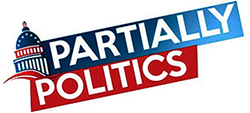While politics are incredibly important to us, there’s a lot more happening in the world. Our News Reel pieces are designed to keep you informed about finances, health, crime, and a wealth of other information.
Partially Politics rounds out each day with these as well as White House features and Politics pieces. We hope you’ll read each story as helpful and informative as intended.



